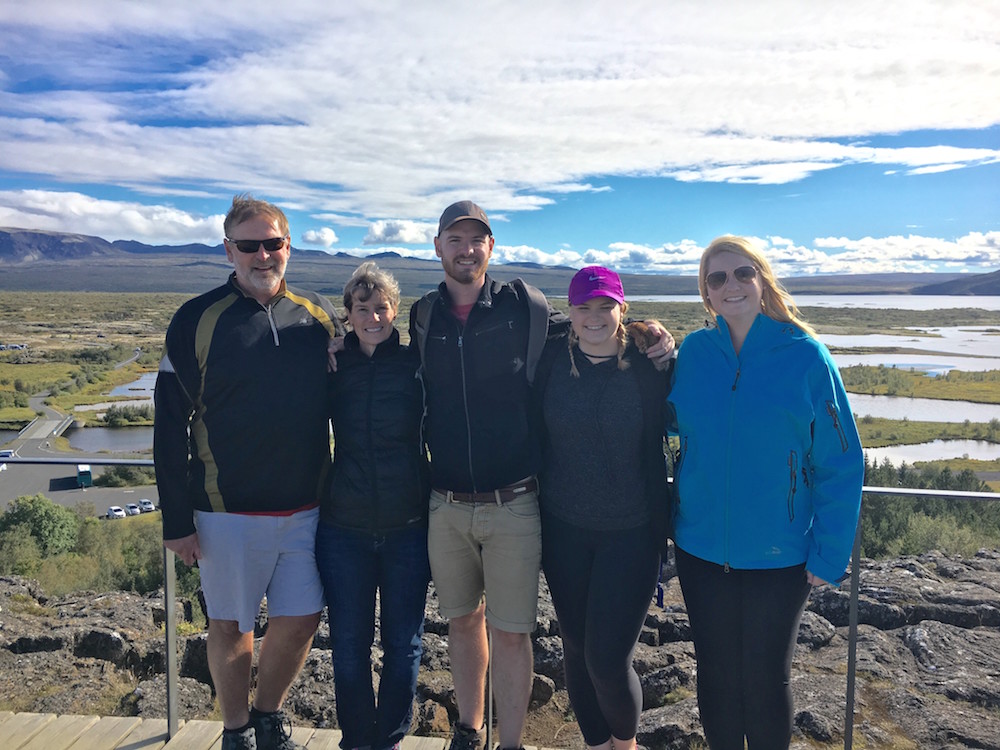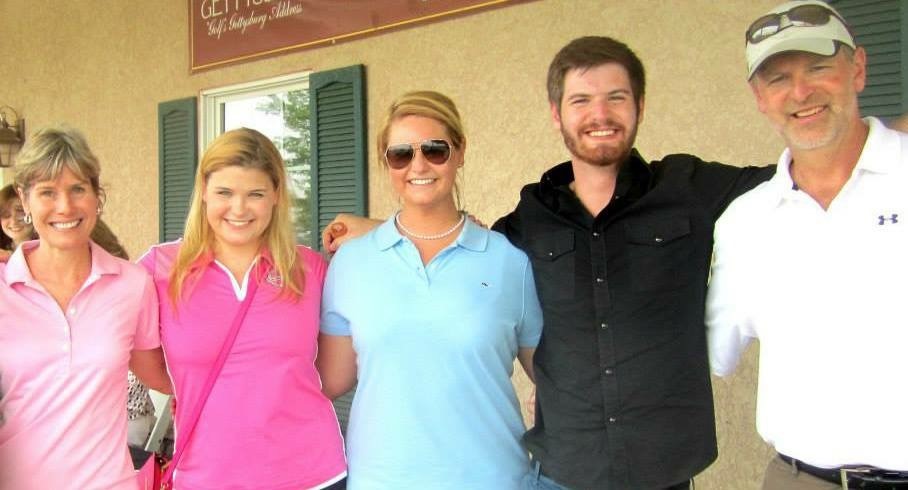Upon learning she had brain cancer in early 2016, Connie Etheridge immediately thought, “Thank goodness it’s me, and not my children.” Then, three months later, her son Trevor, 23, found out he too had brain cancer.
It was a devastating double diagnosis, but the Etheridges have been by each other’s side through check-ups, radiation, and infusions, building on their already strong bond with love, laughter, and a shoulder to cry on when needed. They are also confident about the future thanks to their ongoing treatment under David Reardon, MD, and his team in the Center for Neuro-Oncology at Dana-Farber/Brigham and Women’s Cancer Center (DF/BWCC).

“Both of us believe we would not be in the situation we are now, doing and feeling well, were it not for the surgery and extraordinary treatment we’ve received,” says Trevor, whose diagnosis came just after his mother’s radiation. “In addition to the help we get from my dad, Ben, and my sisters Megan and Marisa, we feel we have our own built-in support group of two.”
The Etheridges have different types of brain cancer — Connie has glioblastoma, while Trevor has anaplastic astrocytoma — but both were diagnosed after suffering seizures. Connie’s came during a vacation to Maine; she had been experiencing mild pressure in the back of her head, but had gotten through her annual physical and was readying for her and Ben’s move from Maryland to Massachusetts. Then she started having trouble remembering things.

“A CAT scan at a Maine hospital revealed what was obviously a tumor, but it was unclear whether it was malignant,” says Connie. “I knew I wanted to be down in Boston, so I went there, had surgery and pathology at DF/BWCC, and then Dr. Reardon told me it was cancer. We had a million questions, of course, and he treated us very gently and gave us all the time we needed.”
Glioblastomas are aggressive tumors that grow and spread quickly, Reardon explained, and do not respond well to standard treatment. Connie was a candidate, however, for a clinical trial that included radiation and immunotherapy.
“We considered several promising clinical trial options for Connie; I felt she was an ideal candidate for an immunotherapy approach because she had always been very healthy and had undergone a very successful tumor resection,” says Reardon, Clinical Director for the Center for Neuro-Oncology. “A year and a half later she remains in great health with no evidence of tumor and continues to receive her immunotherapy treatment.”

Connie started the trial, and a few weeks after she completed her last radiation treatment, in March, Trevor experienced two seizures – a mild one at work, and then a serious one later the same day in the apartment he shared with Megan, his twin. She took him to DF/BWCC, where after surgery to remove his tumor, Trevor’s anaplastic astrocytoma was confirmed.
“Cancer is always unfair, but that seemed more unfair.” Connie recalls.
So began the family’s dual cancer journey. Trevor was given the option of a different care team, but after seeing the care Connie had received, he went the same route. Because anaplastic astrocytomas are less aggressive and more responsive than glioblastomas. He could go on a more standard treatment regimen including six weeks of radiation and a year of oral chemotherapy. He completed his 12th and final cycle in July, and his tumor remains dormant.
“I’m happy that by participating in the trial I can help move cancer research forward to potentially benefit other patients – including Trevor,” says Connie. “There is something nice about feeling we are doing everything we can for ourselves and others.”
This includes sharing their story, which mother and son will do over the airwaves during the 16th annual WEEI/NESN Jimmy Fund Radio-Telethon presented by Arbella Insurance Foundation. The 36-hour event will be broadcast live on Aug. 15 and 16 from Fenway Park over the WEEI Sports Radio Network (93.7 FM) and the New England Sports Network (NESN). Running from 6 a.m. to midnight both days, it will feature interviews with Dana-Farber patients, doctors, and nurses, as well as with sports and entertainment celebrities. The Etheridges and Reardon are scheduled to appear the first morning.
Further excitement awaits in September, when Trevor starts a new job in Boston – where he will be close to Dana-Farber should more challenges arise. Currently he and Connie are both doing great, with clear MRIs and no side effects from their treatment.
Learn more about brain tumors from the Center for Neuro-Oncology at Dana-Farber/Brigham and Women’s Cancer Center (DF/BWCC).
